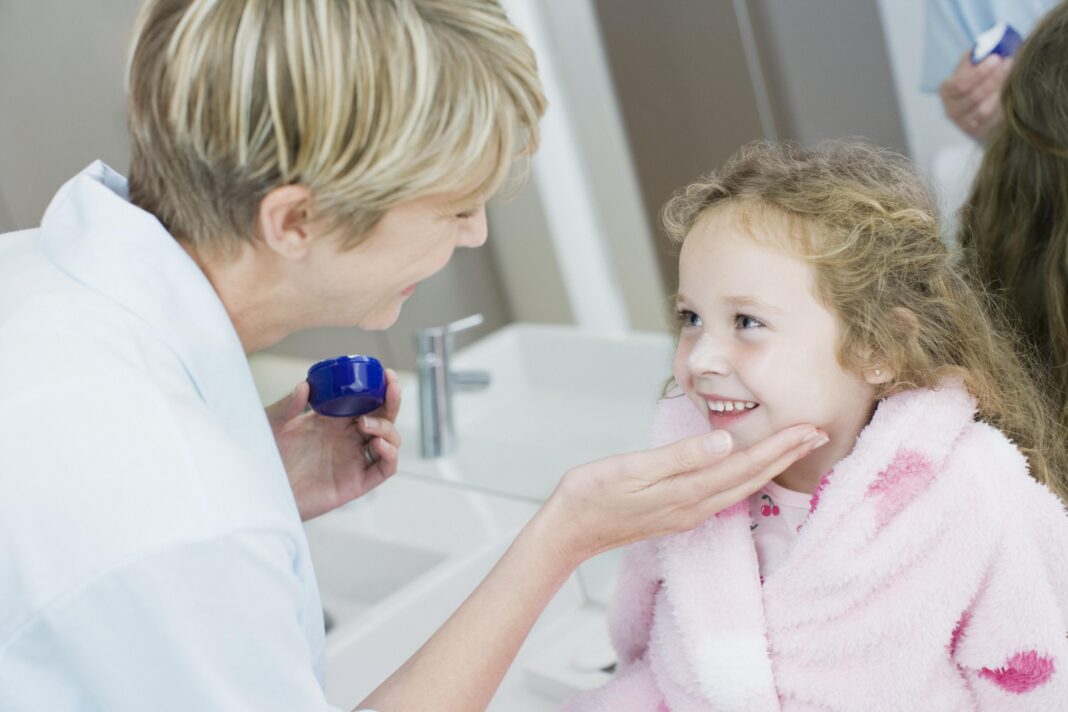Note: This post contains affiliate links, when you purchase a product or service through one of these links we may earn a commission on that sale.
There are so many baby skincare products out there, from creams and cleansers to sunscreens and medicated lotions. It confuses most consumers.
Pediatricians know that the younger a child is, the more sensitive their skins are. Most pediatricians will tell you not to use any products unless required. Plain water showers followed by gentle pat-drying to cleanse the skin will maintain the skin’s natural moisture and remove the need for external moisturizers. Many products labeled “baby soap” are not chemically different from the adult versions except for the removal of color and fragrances, which are the most common irritants. However, these cleansers still contain synthetic detergents, which strip away natural oils from the skin, creating the need for moisturizers or oils. According to Adroit Market Research, the baby skin care market will reach $18.93 billion by 2025. This is mainly the effect of over-marketing pediatric products to parents who, of course, want the best for their child.
Most products for babies are superfluous. Especially avoid products that contain the following ingredients:
- Parabens: Parabens are widely used as preservatives in body washes, shampoos, and facial cleansers. However, they can be very irritating, and even adults are advised against using them.
- Sunscreen Chemicals: Chemicals are commonly found in sunscreen and operate as agents to absorb ultraviolet light, but most of these are unsafe for children. Most pediatricians recommend refraining from using sunscreen on any child younger than two. If they play out in the sun for a prolonged time, ensure that they wear long-sleeved cotton shirts and are covered in loose, soft, comfortable clothing.
- SLS (Sodium Lauryl Sulfate): This is the most common synthetic detergent. This is likely a component in your shampoo and body wash. While SLS is okay for adults, it is far too harsh on toddlers’ skin and will remove necessary oils, making the skin dry.
- New, trendy ingredients: If an ingredient is very new, it means there has not been enough research conducted to know whether they are safe or not. Even plant-based ingredients can be irritating (remember, poison ivy is a plant). Stay simple and minimal for maximum efficacy.
- Dyes and fragrances: These are the most irritating ingredients of all. Most products for adults with sensitive skin are also formulated without them.
Babies and toddlers have the most sensitive skins of all humans, so it is important to avoid any excessive ingredients and not fall for shiny advertisement campaigns. Eczema, diaper rashes, and other common complaints can be treated symptomatically as they arise. Using additional products will not decrease the probability of a toddler developing a skin condition. Be judicious and stay informed. And for the most part, let your toddler’s skin be.


